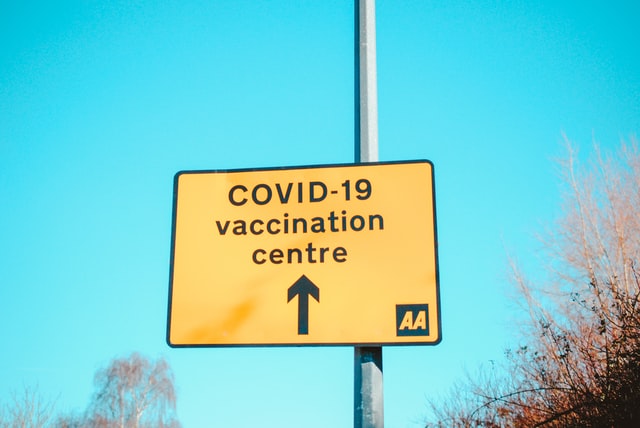After technological developments of coronavirus tracking apps, a year ago, now the ongoing vaccination process has brought new technologies. A few days ago, it was announced that tech companies and government officials are looking at developing digital vaccine passports. This new technology is meant as proof for vaccinated individuals when crossing borders.
The COVID-19 pandemic has been going on for more than a year now, which has brought many changes but also many opportunities for tech development in an effort to combat this health crisis. In order to stop or slow down the spread of the virus, traveling is still restricted in some countries, or if not, then PCR tests or quarantine are a requirement. For this reason, the digital app working as a vaccine passport is seen as a way to facilitate travel for vaccinated individuals.
But how does it work? And will this become the new method of travel, with a mandatory passport proving vaccination?
COVID-19 digital passport – the specifics
In England, on May 17th, The National Health Services announced the new technology, which acts as credentials when traveling. So, when crossing a border, besides presenting your passport or another form of National ID Card, you will be required to show an additional document that proves you are vaccinated. In the U.K., this vaccine passport currently works solely when exciting England. The app hasn’t been introduced in Scotland, Wales, and Northern Ireland yet.
There is a misunderstanding that this passport will be needed not only when traveling but also to enter restaurants or events. While this might be the case in the future, this isn’t the case yet. What’s more, this is perceived as somewhat controversial, as some people are quite skeptical of this idea. This might be because although vaccines are not mandatory, access can be limited for people who aren’t vaccinated.
Using this technology can be helpful in order to avoid needed requirements such as quarantining or having to test for coronavirus infection every time you enter or leave a country. The possibility of avoiding this can be a great advantage, as some people might not be able to stay in quarantine if their work cannot be done remotely, or they cannot afford to pay for multiple PCR tests. However, the downside is that some countries still ask people arriving there to quarantine or have a negative COVID-19 test, regardless if they are vaccinated or not. So, you will still need to check the rules imposed in the country of your destination. There are discussions regarding the addition of the digital passport app of a feature that shows a negative result for the test.
A noteworthy mention would be that this newly developed app is not an added feature to the tracking app developed to trace the spread of the virus based on possible contact of the infected person with other people. Instead, it is an addition to the NHS digital app where people can access their medical records and their G.P. and doctor contact details.
Possible issues with the vaccine passport technology
As with any other digital app, there are specific technical issues that can occur. In this case, the development of such digital tools brings into discussion privacy issues. The public is growing concerns about the purpose of this new technology – more specifically, the extended use of a technology known as function creep. This means that people are afraid this digital vaccine passport app could have other hidden purposes besides its primary role to solve international travel during a pandemic.
Privacy issue concerns are not far-fetched as many technologies have been used for other reasons than initially stated. For instance, the necessity of increased airport security and surveillance at borders after the 9/11 attack has brought identification and facial recognition technology, known as biometrics analysis. Experts in civil rights criticize its use, saying that this technology is biased and can falsely accuse people due to racial profiling. So, personal privacy is constantly questioned in an almost entirely digital environment, and it is understandable that people are skeptical about a digital vaccine passport app.
Another possible issue that the existence of vaccine passports in digital form brings is the appearance of forgeries. In some countries such as the U.S., U.K., or Germany, people are already selling vaccines, vaccine certificates, or negative test results on the dark web. So, the reality is that fake COVID-19 vaccine credentials can be quickly developed and illegally sold. In order to escape quarantine or having to pay for PCR tests, people who aren’t vaccinated will buy these fake certificates and risk tremendous consequences. What’s more, doing this can increase the spread of the virus and the ability to control it, given that individuals can escape the health measures mentioned earlier, which are meant to avoid transmitting the infection to others.
Other COVID-19-related technology
In an attempt to get a hold of the pandemic and better control the virus and its fast spread, many countries and tech companies have been working on developing contact tracing apps. This means that with the help of an app downloaded on a smartphone, you would be able to trace an infected person. To do this, the person who was positively confirmed with a positive result would have to activate the app’s notifications so other people within a 2-meter radius could be notified.
However, because the digital tool works when Bluetooth is activated and sharing data is necessary for the app to work, there are concerns regarding privacy issues. For this reason, researchers developed a tool that can detect and resolve problems related to user privacy. You can read more on Techrobot about how these contact tracing apps work, but also if you want to know how this tool, known as COVIDGuardian, can identify security vulnerabilities.
People’s opinion on these apps
The contact tracing app has been received with some concerns regarding personal privacy matters. Similarly, the discussion around the digital COVID-19 vaccine passport shows that people are also uncertain of its use, given that it is a certificate proving inoculation with a newly developed vaccine. In the U.S., the former FDA commissioner Dr. Scott Gottlieb stated last month that a digital COVID-19 vaccine passport could help Americans gain access more easily. However, the Biden administration eliminated the possibility of vaccine passports. So, a digital app providing this vaccine certification is yet to be used in America.







